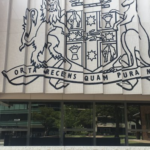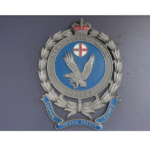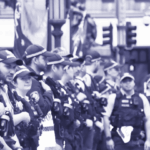Bowraville Murder Case Re-Opened

The unsolved mystery of three children who went missing over a five-month period in 1990 and 1991 from the same street in Bowraville, Northern NSW, has divided a town, gripping a nation for more than two decades.
But now, the bereaved families have received news that NSW Attorney General Gabrielle Upton has asked the Court of Criminal Appeal to review the case, and consider whether the sole suspect, Jay Hart, should be retried.
Upton’s decision comes after Detective Chief Inspector Gary Jubelin, who has spent 20 years reinvestigating the killings, delivered an 18-volume brief of evidence to the her offices saying it represented an ¬“opportunity to get justice.”
Botched Investigation
As previously reported, the initial investigation has been heavily criticised for the dismissive attitude of police and a series of dubious decisions which may have led to vital evidence being lost.
For months, police told each of the victims’ families that their child may have gone “walkabout”, showing little concern for the kids and neglecting to treat the cases as possible abductions, let alone murders.
While the incident was declared a homicide investigation once bodies were found, no specialist homicide detectives were sent in – and the case was instead investigated by two local officers with no experience in murder cases.
And despite the fact that the only suspect lived in a caravan, it was a full 10 days after the first body was found that police examined the home for evidence.
Only a single tiny drop of blood was found inside – so small it could only be identified as human blood. Hart was also allowed to keep items consistent with the blunt force trauma injuries sustained by the deceased children – forensics never got to examine them.
The families believe the half-hearted investigation and nonchalant attitude of police was due to racial discrimination, and that a case of three missing white children would have been treated differently.
Separate Trials
Hart was tried separately for two of the murders – those of 16-year-old Clinton Speedy-Duroux and four-year-old Evelyn Greenup. The body of the third child, 16-year-old Colleen Walker, was never found.
He was acquitted after what has been described as a “half-hearted prosecution”, where there was little opposition to separate trials being granted despite the similarity of the cases.
The matter could not be re-tried due to ‘double jeopardy’ laws – which generally prevent a person from being tried twice over the same set of circumstances.
However, a 2006 change to double jeopardy laws means that an acquitted person can now be re-tried if ‘fresh and compelling’ evidence comes to light.
The families have long asserted that unless the three cases are tried together, the ‘full picture’ cannot be presented to a jury.
In the Court’s Hands
Hart has repeatedly denied any involvement in the murders, and it will be up to the Court of Criminal Appeal to decide whether fresh evidence said to link the cases to each other, and also to him, warrants a re-trial. In making that determination, the court must decide whether a re-trial is in the ‘interests of justice’.
The Bowraville murders are one of Australia’s most famous unsolved mysteries.
Colleen Walker was first to go missing, in September 1990. Evelyn Greenup and Clinton Speedy-Duroux disappeared from the small town over the course of the next five months.
Evelyn’s and Clinton’s bodies were found dumped beside a dirt road outside the town. Colleen’s clothes were recovered from a nearby river.
Ms Upton hopes that the referral will lead to justice and closure for the bereaved families.






